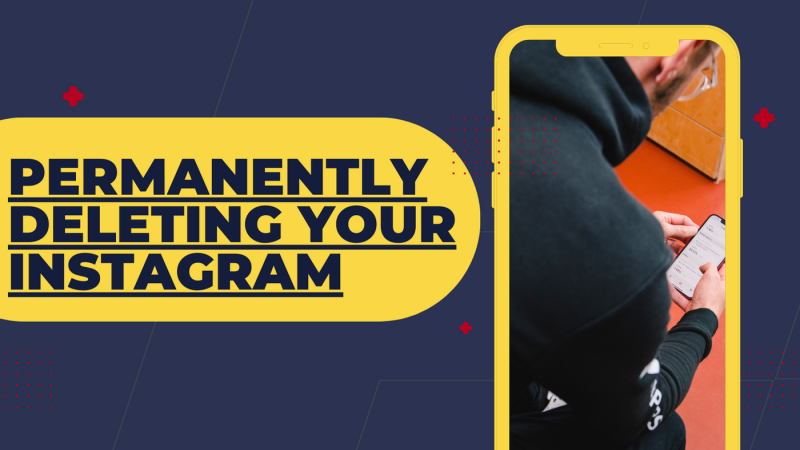Building a successful website goes beyond just aesthetics; it requires an experienced web developer who understands your goals and can deliver results. This comprehensive guide will take you through the essential questions every business should ask their web developer, from understanding their background to technical aspects and ongoing support. By the end, you’ll be equipped with valuable knowledge to ensure your next web development project is a success.
Understanding Your Web Developer's Background
The decision to choose the right web developer significantly impacts your business. The ability of a developer to create a successful website is determined by their background, experience, and portfolio. Keep in mind the importance of search engine optimisation, user experience, and web design when thinking about questions to ask web developers. Analysing their portfolio, client testimonials, and experience with similar projects can help you make an informed decision and avoid project delays.
What are the Essential Skills Every Web Developer Should Have?
Web developer qualifications include proficiency in HTML, CSS, JavaScript, Git, backend technologies, JS libraries and frameworks, testing and debugging, SEO skills and responsive web designing skills in order to create functional and responsive web pages.
Experience with Similar Projects
What steps should you take to verify your web developer’s experience with similar projects? One approach is to consider the “questions to ask” them about their past work and how they align with your goals. This is especially important when dealing with e-commerce websites, as they require different skills than standard brochure websites. Make sure they understand your target audience and the essential web pages your site needs, such as a homepage, “About Us” page, and a “Contacts” page. By addressing essential questions this will help you gauge their ability to deliver a website that meets your expectations and drives results.
Portfolio Analysis
An assessment of a web developer’s design style, user experience, and technical capabilities can be achieved by evaluating their portfolio. Look for websites they have built that are similar to your vision, and ensure they have experience working with businesses in your industry.
Consider how the current website in their portfolio incorporates essential elements such as:
- CTA buttons
- Live chat
- Social media buttons
- Mobile responsiveness
Additionally, take note of how template websites can offer similar features to enhance user experience.
This will help you determine if the developer is capable of creating a website that caters to your target audience and aligns with your marketing strategies.
Client Testimonials
The reliability, communication skills, and quality of work of a web developer can be evaluated through client testimonials. Look for testimonials that provide specific details, have a positive tone, and come from a variety of sources.
Assessing client testimonials can help you understand the web developer’s communication skills, responsiveness, and ability to understand client needs. By considering client feedback, you can make an informed decision about whether a potential web developer is the right fit for your project.
Defining Project Scope and Goals
A smooth development process relies on the establishment of clear project scope and goals. Discussing the objectives of the website, the specific goals of each page, and the overall branding and marketing plan with your developer will ensure both parties are on the same page. This also helps in identifying any potential issues early in the process and allows for necessary adjustments to be made, preventing delays and additional costs.
Establishing a realistic timeline, budget, and list of deliverables will keep the project on track and help you achieve the desired outcomes.
Project Timeline
Timely delivery and minimisation of delays can be ensured with a well-defined web design project timeline. Work with your web developer to create a realistic timeline that includes key milestones and a schedule tailored to your specific needs and requirements. Keep in mind that a straightforward website redesign typically takes 4-6 months to complete.
Establishing a clear timeline will help maintain accountability and prevent the project from dragging on, ultimately saving you time and money.
Budget and Pricing Structure
Discussing the budget and pricing structure with your web developer is important to avoid surprises and ensure the project stays within your financial constraints. Web developers often use pricing models such as:
- Time-based pricing
- Fixed pricing
- Value-based pricing
- Cost-plus pricing
- Equity pricing
A fixed-price model is recommended to reduce the potential risk of incurring additional costs in the event of project delays. This will help you plan your finances accordingly and keep the web development project on track.
Deliverables and Revisions
To align the final product with your expectations and requirements, it’s important to clarify deliverables and revisions. Revisions allow for refinement and improvement of the website design, helping to identify and resolve any issues or bugs that may arise during the development process.
When negotiating the number of revisions with a web developer, it’s important to set clear expectations and establish a transparent process for submitting and addressing requests. This will ensure a smooth collaboration and ultimately lead to a more satisfactory final product.
Technical Aspects of Web Development
The website’s success heavily depends on its technical aspects. It’s essential to discuss the following with your web developer to ensure a seamless user experience and optimal site performance:
- Content management system (CMS)
- Responsive design
- Accessibility
- SEO strategy
Consider factors such as site loading speed, mobile responsiveness, and search engine optimisation when evaluating potential web developers for your project. Don’t hesitate to ask your web developer about these crucial aspects to ensure the best results for your online presence.
Content Management System (CMS)
Efficient management of your website content requires a suitable content management system (CMS) and reliable web hosting. Popular CMS options include WordPress, Wix, Drupal, and Joomla. When engaging a web developer with a proprietary CMS, inquire about access to source code, ownership transfer, hosting options, and any licensing or renewal fees. This will help you choose a CMS that offers flexibility, ease of use, and the ability to make changes and updates to your website independently.
Responsive Design and Accessibility
When selecting a web developer for your website redesign, considering responsive design and accessibility is a must. A responsive website ensures optimal viewing experience and functionality on all devices, from desktop computers to mobile phones. Web design companies play a crucial role in achieving this goal.
Additionally, accessibility refers to the process of making websites accessible to individuals with disabilities, following guidelines such as WCAG 2.1. By prioritising responsive design and accessibility, your web developer will be better equipped to cater to all users, including those with disabilities, and improve your website’s overall user experience.
SEO Strategy
Your website’s visibility and organic traffic rely heavily on search engine optimisation (SEO). Discuss your web developer’s SEO strategy and their experience in implementing these tactics to improve your site’s search engine rankings. Make sure they understand the importance of keyword research, on-page optimisation, and other technical SEO tactics.
By ensuring your web developer is well-versed in SEO, you can increase your chances of attracting and converting new customers online as a business owner.
Ongoing Support and Maintenance
The success and longevity of your website depend on ongoing support and maintenance. Post-launch support, website maintenance, and training for user access should be discussed with your web developer to ensure a seamless transition and continuous improvement.
Regular updates, security scans, and proactive issue resolution will help keep your new site secure, up-to-date, and functioning optimally.
Post-Launch Support
Once your website is live, post-launch support becomes important for addressing any issues and making necessary updates. Ensure your web developer offers post-launch support to handle:
- E-commerce issues
- Third-party plugin integration
- New feature requests
- Site upgrades
- Privacy and security updates
- Troubleshooting for updates and patches
By having a reliable post-launch support system in place for your existing website, you can focus on growing your business while knowing your new website is in good hands.
Website Maintenance
To keep your site secure, up-to-date, and functioning optimally, regular website maintenance is required. Discuss website maintenance plans with your web developer to ensure they cover aspects such as:
- Security updates
- Feature requests
- Website backups
- Content updates
This will help you maintain a strong online presence and protect your website from potential threats.
Training and User Access
For independent management of your website, training and user access become essential. Request training on your chosen content management system (CMS) so you can make changes and updates to your website without relying on a web developer. This will empower you to take control of your website’s content and maintenance, ensuring your site remains updated and relevant to your target audience.
Communication and Collaboration
A successful web development project, which often includes a design project, is characterised by effective communication and collaboration. Establishing a dedicated point of contact, progress reports, and using tools for communication will help streamline the development process and avoid misunderstandings.
By fostering open and transparent communication with your web developer, you can ensure your project stays on track and meets your expectations.
Dedicated Point of Contact
For streamlined communication during your web development project, a dedicated point of contact is necessary. This person should be responsible for providing updates, addressing concerns, and coordinating tasks between the client and the development team. By having a single point of contact, you can avoid miscommunication and ensure a smooth development process.
Progress Reports and Feedback
Stay informed about the status of your project and keep it on track by requesting regular progress reports from your web developer. Progress reports should include a summary of completed tasks, milestones achieved, and any issues encountered.
Providing feedback on these reports will help address any concerns and ensure the project meets your expectations and requirements.
Tools and Platforms
Discuss the tools and platforms used for communication and collaboration with your web developer, such as:
- Slack
- Cisco WebEx
- Zoom
- Microsoft Teams/Office 365
- G-Suite
- Asana
- Trello
These tools can streamline workflow, automate tasks, and facilitate collaboration between you and the development team. By using the right tools and platforms, you can ensure a smooth and efficient development process.
Asking the right questions and addressing crucial aspects of web development, such as the developer’s background, project scope, technical aspects, and ongoing support, will help ensure a successful website that meets your business objectives.
By maintaining open communication and collaboration throughout the process, you can achieve a high-quality website that attracts, engages, and converts visitors.




